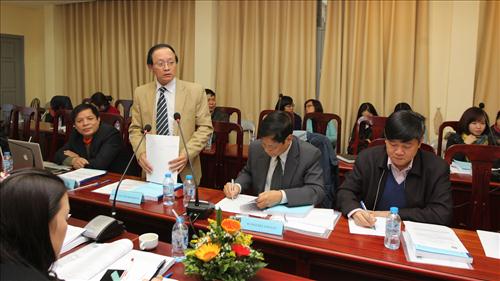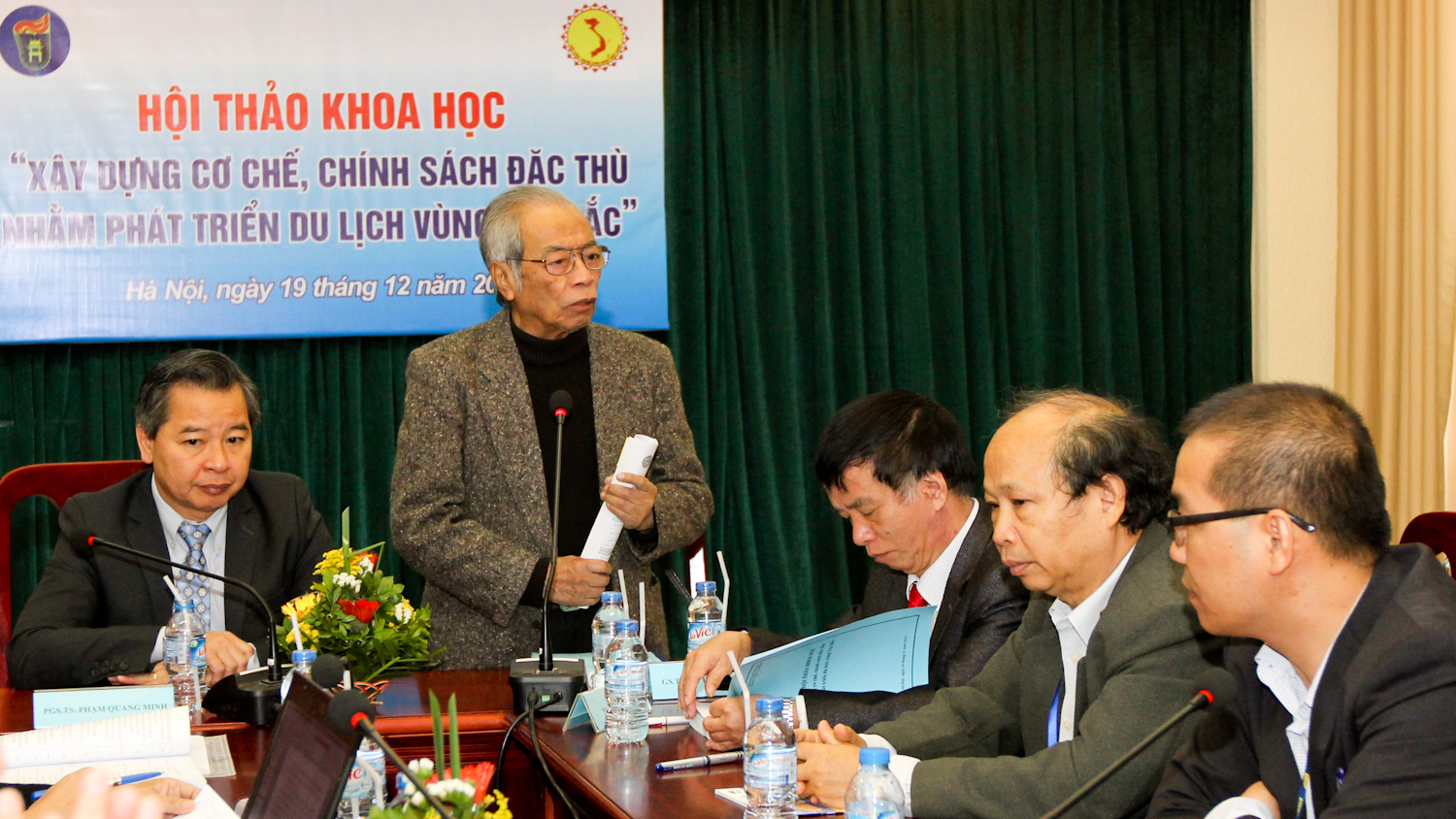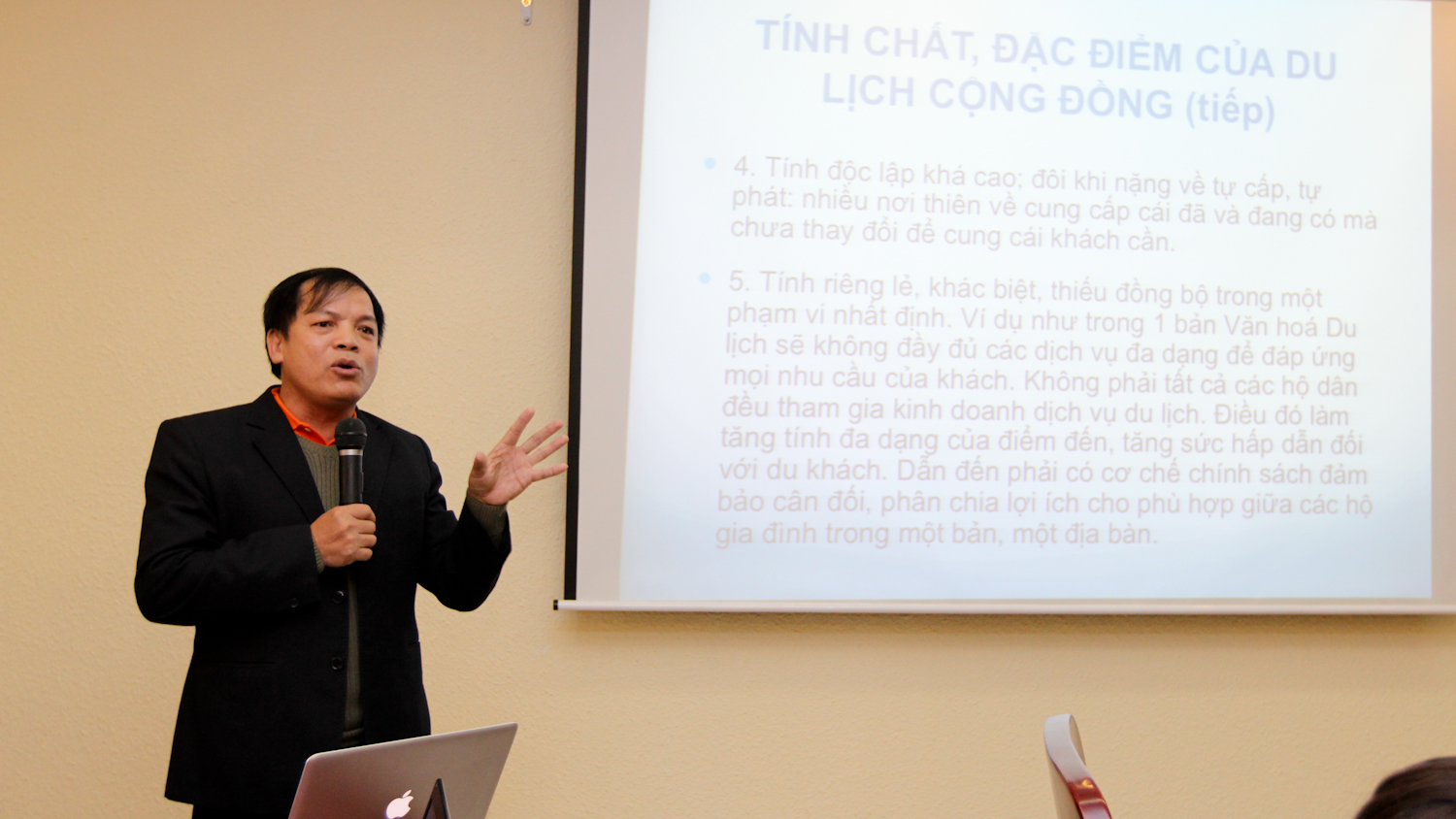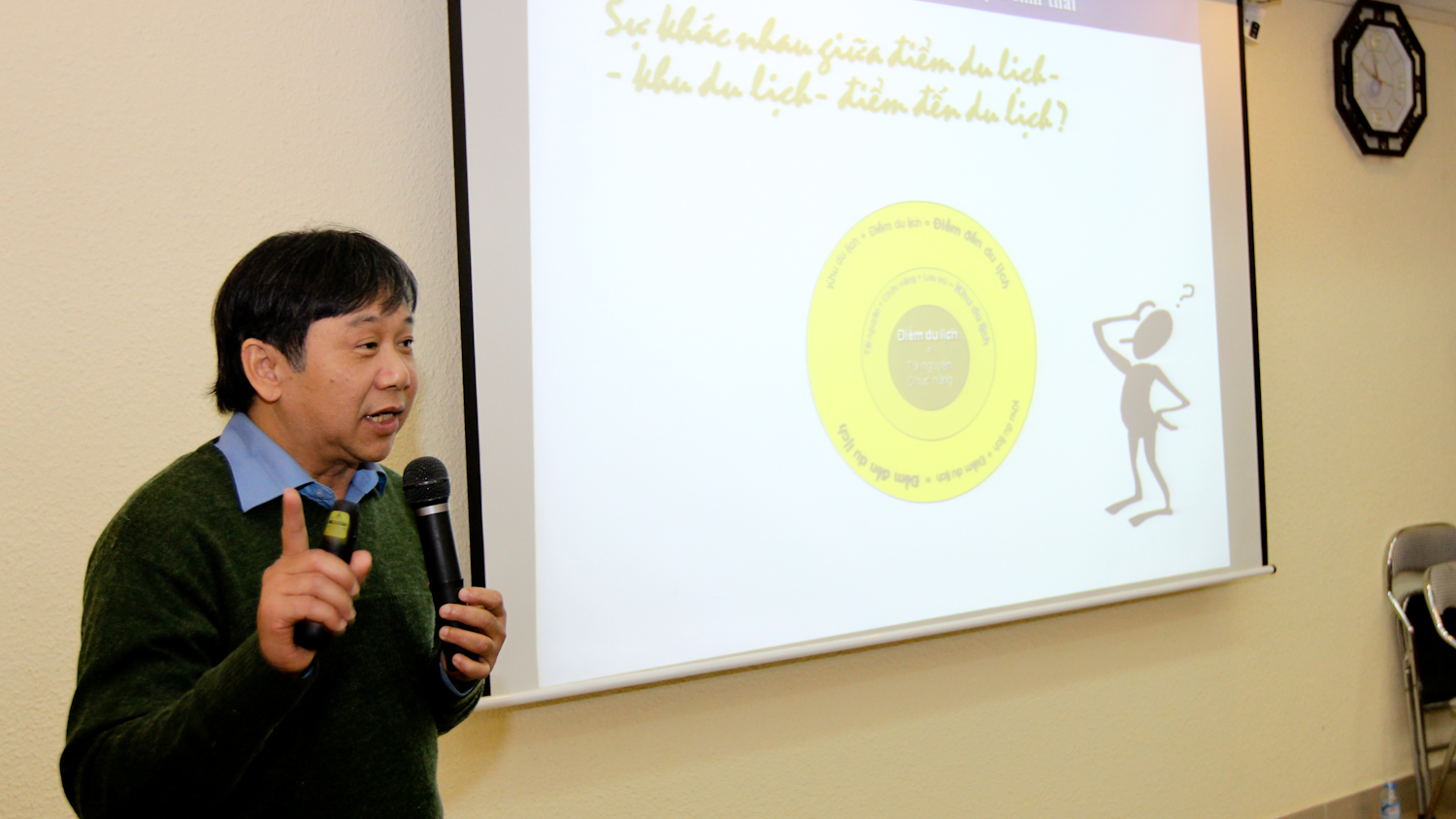
The workshop attracted more than 50 presentations and over 80 scientists, tourism experts, and leaders of the Departments of Culture, Sports and Tourism in the Northwest region to attend and discuss.
 S
S
Assoc. Prof. Dr. Pham Quang Minh, Vice Principal of the School delivered the opening speech at the workshop.
At the workshop, experts and researchers discussed issues such as: Criteria for building ecotourism models in the Northwest region; building appropriate policy mechanisms to develop community tourism in the Northwest region; building appropriate policy mechanisms to develop community tourism in the Northwest region; building criteria for ecotourism areas in Vietnam...
The Northwest region includes the provinces of Cao Bang, Ha Giang, Lang Son, Lao Cai, Dien Bien, Lai Chau, Son La, Yen Bai, Tuyen Quang, Bac Kan and Hoa Binh. It is a region endowed by nature with majestic beauty, rugged terrain and a unique and diverse ecosystem. It is also home to many ethnic minorities, a revolutionary base, and a safe zone for resistance wars.
These characteristics create a huge advantage for the Northwest region to develop ecotourism, a type of tourism that aims for sustainable development, based on nature and indigenous culture.
In recent years, the Northwest has developed tourism strongly, but there are still many problems and challenges, including gaps in mechanisms and policies that prevent these tourism potentials from being fully exploited.

Prof. Dr. To Ngoc Thanh, Chairman of the Vietnam Folk Arts Association, delivered a speech at the conference.
In his opening speech at the workshop, Professor To Ngoc Thanh, Chairman of the Vietnam Folklore Association, raised a number of issues regarding the policy mechanism for developing ecotourism and cultural tourism in the Northwest region.
He affirmed: "The State needs to soon have specific policies to orient tourism development or solve problems to protect, preserve and develop tourism in the Northwest."
In order to develop ecotourism sustainably, according to Dr. Nguyen Anh Tuan, it is necessary to focus on four criteria: Protecting the environment and maintaining the ecosystem - this is the top principle in developing ecotourism in the Northwest; Second is preserving and organizing the reasonable exploitation of indigenous cultural values - that is, the entire lifestyle, cultivation, customs, and folk beliefs associated with natural ecology that create the common value for the ecotourism area; Third is organizing educational activities and interpreting the environment and ecosystem; and finally, organizing for community participation.

Dr. Duong Van Sau is sharing his research views.
In the paper “Building appropriate policy mechanisms to develop community tourism in the Northwest region”, Dr. Duong Van Sau said: “Community tourism is a form of bringing tourism to localities, to indigenous communities. This activity aims to exploit existing strengths and potentials. However, exploiting community tourism must be focused, avoiding the widespread situation, where community tourism is done everywhere, and every household does community tourism.”
According to Dr. Duong Van Sau, it is necessary to build appropriate policy mechanisms for the development of community tourism such as: Positioning the role of tourism economy for the locality: key or spearhead; Having consistent, synchronous, and continuous policies; Selecting points, building a chain of destinations; inter-village - inter-regional - inter-cultural...; Developing with focus, key points, not spreading too many points (villages, hamlets) to build community tourism; Having policies to diversify industries and fields in a cultural tourism village to develop community tourism...

The workshop attracted many opinions from experts and tourism researchers.
Many opinions of scientists, experts, and leaders of the Departments of Culture, Sports, and Tourism were also brought up for discussion and sharing in order to seek knowledge, experience, and ideas to build specific policy mechanisms suitable for tourism in the Northwest region.
Author:Hoai An
Newer news
Older news